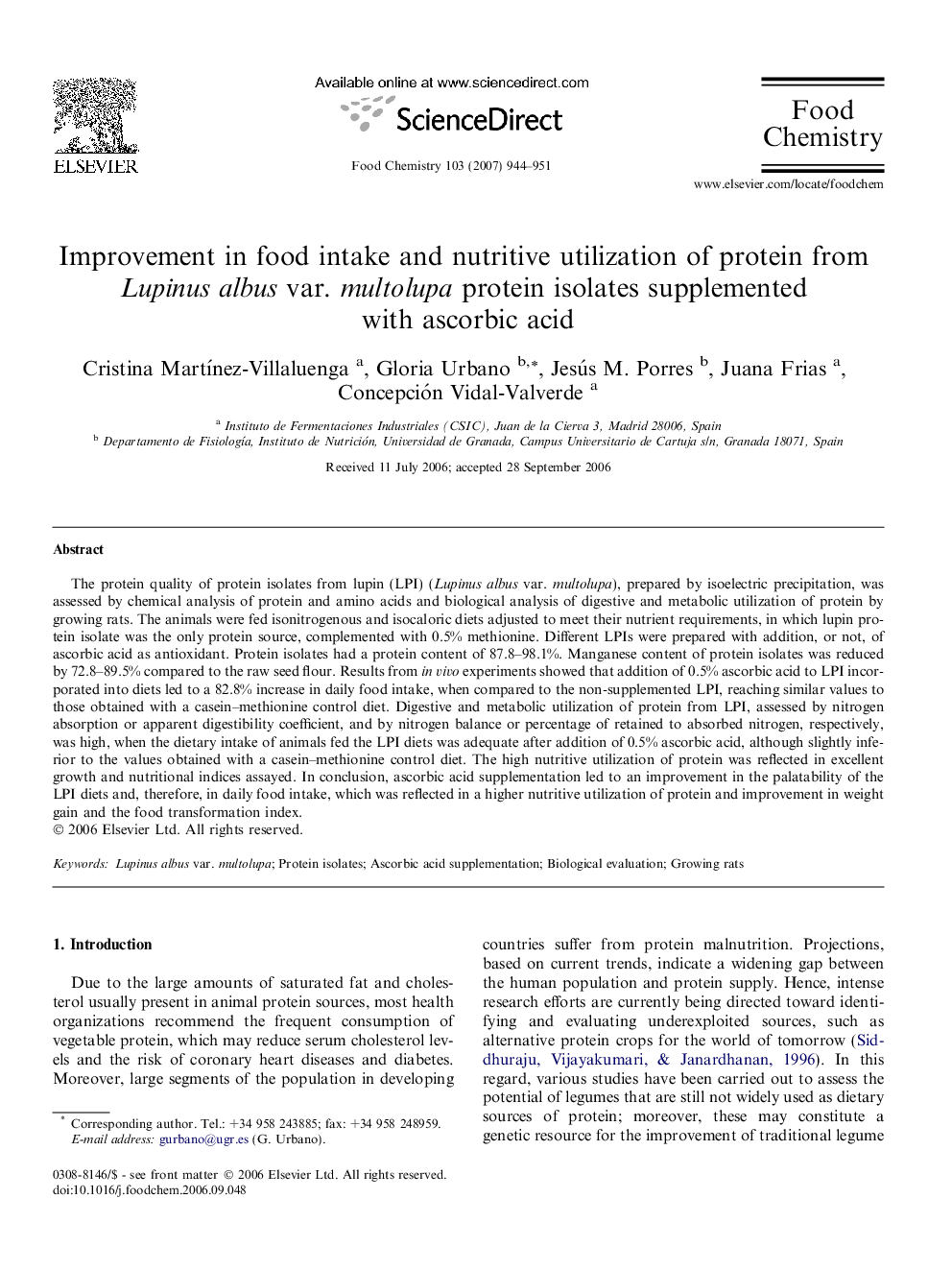| Article ID | Journal | Published Year | Pages | File Type |
|---|---|---|---|---|
| 1190408 | Food Chemistry | 2007 | 8 Pages |
The protein quality of protein isolates from lupin (LPI) (Lupinus albus var. multolupa), prepared by isoelectric precipitation, was assessed by chemical analysis of protein and amino acids and biological analysis of digestive and metabolic utilization of protein by growing rats. The animals were fed isonitrogenous and isocaloric diets adjusted to meet their nutrient requirements, in which lupin protein isolate was the only protein source, complemented with 0.5% methionine. Different LPIs were prepared with addition, or not, of ascorbic acid as antioxidant. Protein isolates had a protein content of 87.8–98.1%. Manganese content of protein isolates was reduced by 72.8–89.5% compared to the raw seed flour. Results from in vivo experiments showed that addition of 0.5% ascorbic acid to LPI incorporated into diets led to a 82.8% increase in daily food intake, when compared to the non-supplemented LPI, reaching similar values to those obtained with a casein–methionine control diet. Digestive and metabolic utilization of protein from LPI, assessed by nitrogen absorption or apparent digestibility coefficient, and by nitrogen balance or percentage of retained to absorbed nitrogen, respectively, was high, when the dietary intake of animals fed the LPI diets was adequate after addition of 0.5% ascorbic acid, although slightly inferior to the values obtained with a casein–methionine control diet. The high nutritive utilization of protein was reflected in excellent growth and nutritional indices assayed. In conclusion, ascorbic acid supplementation led to an improvement in the palatability of the LPI diets and, therefore, in daily food intake, which was reflected in a higher nutritive utilization of protein and improvement in weight gain and the food transformation index.
